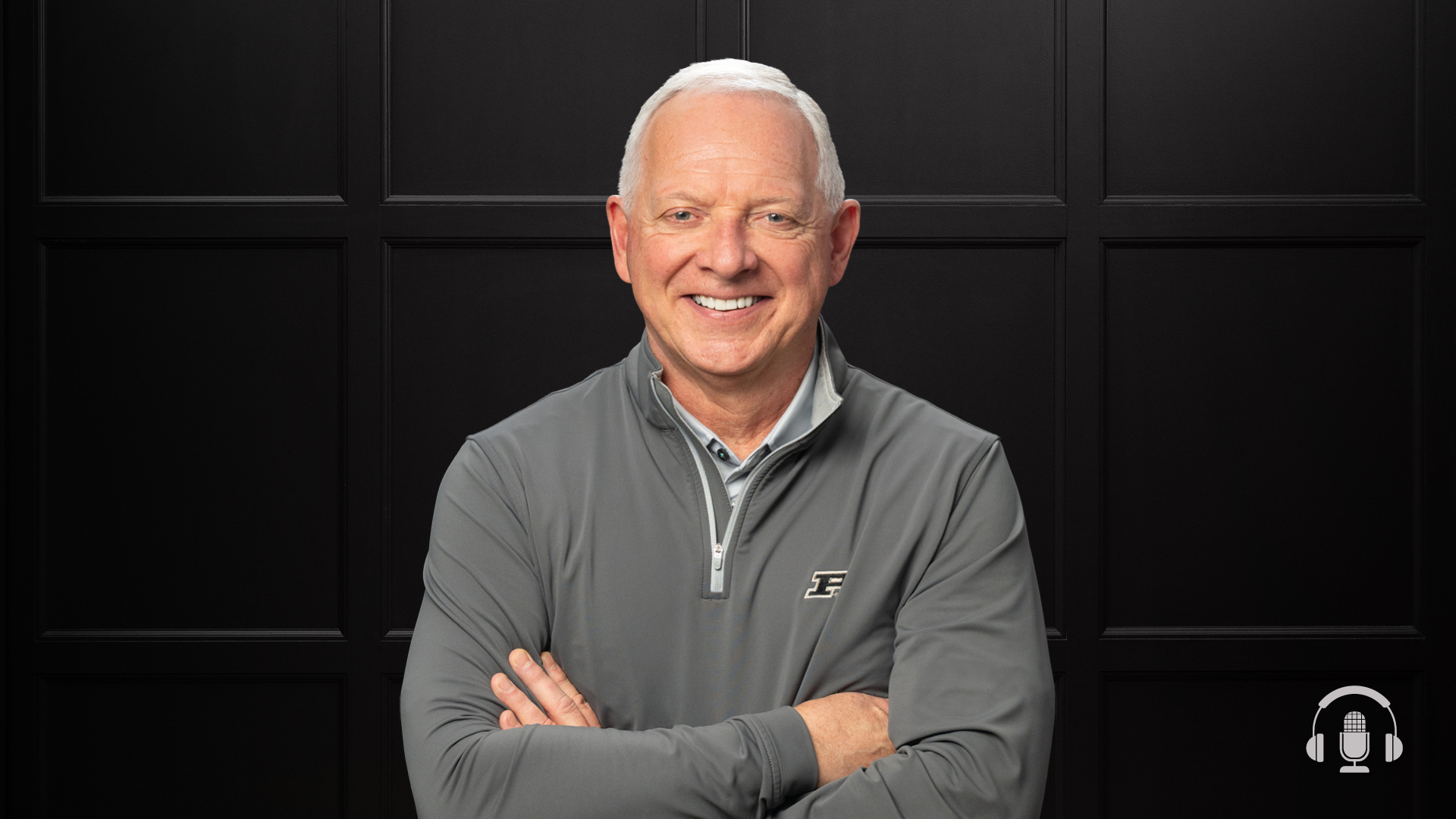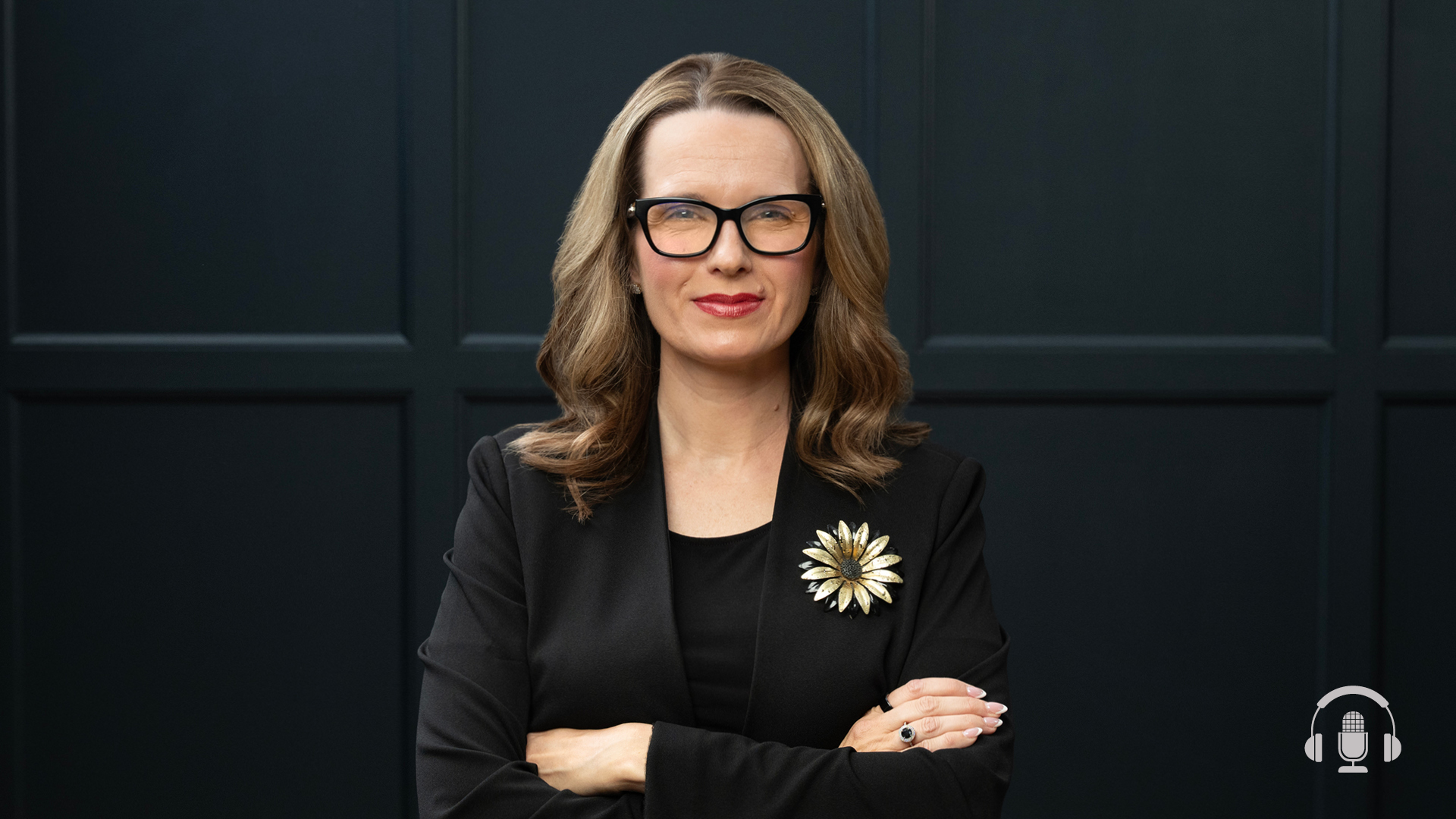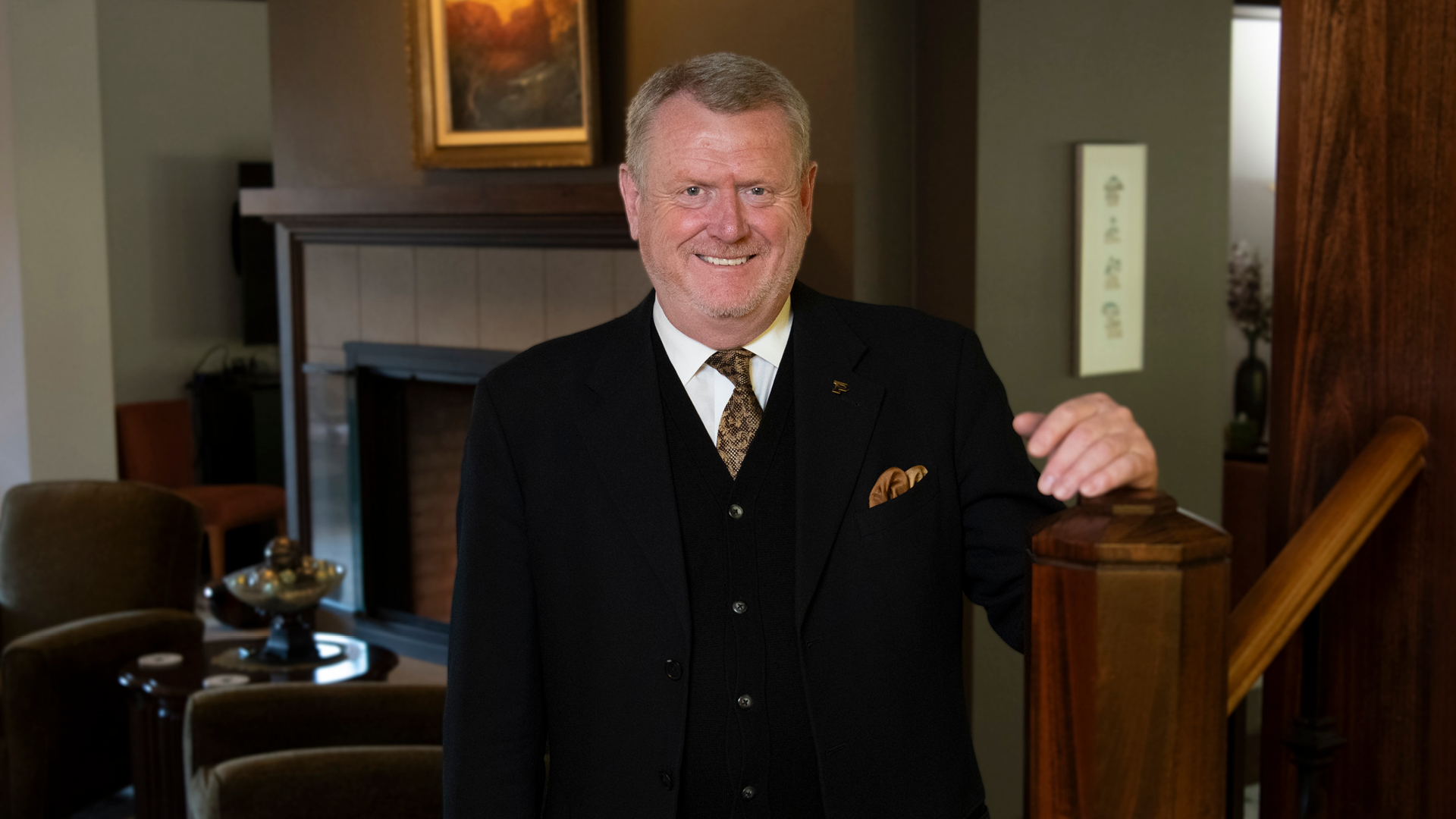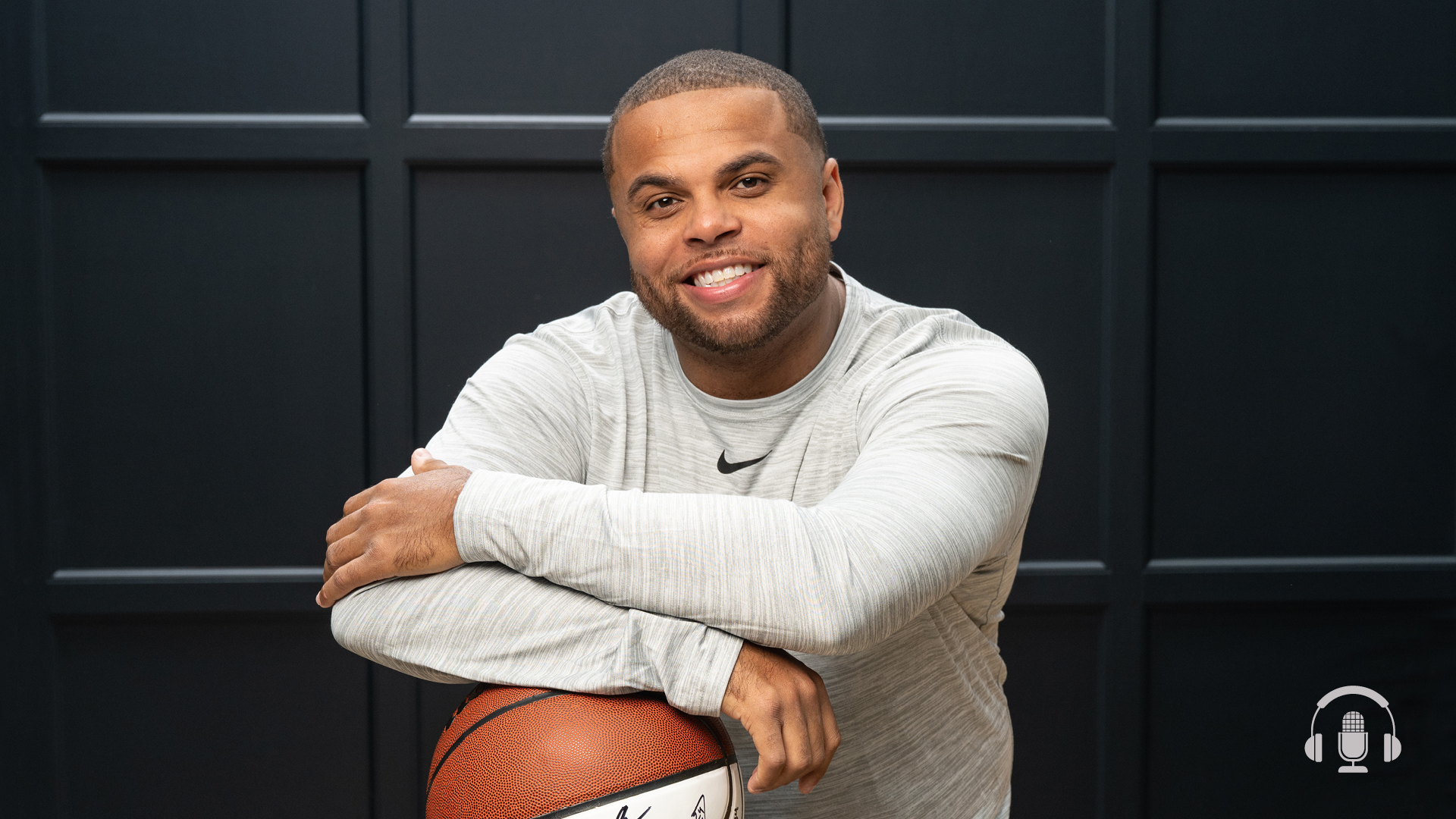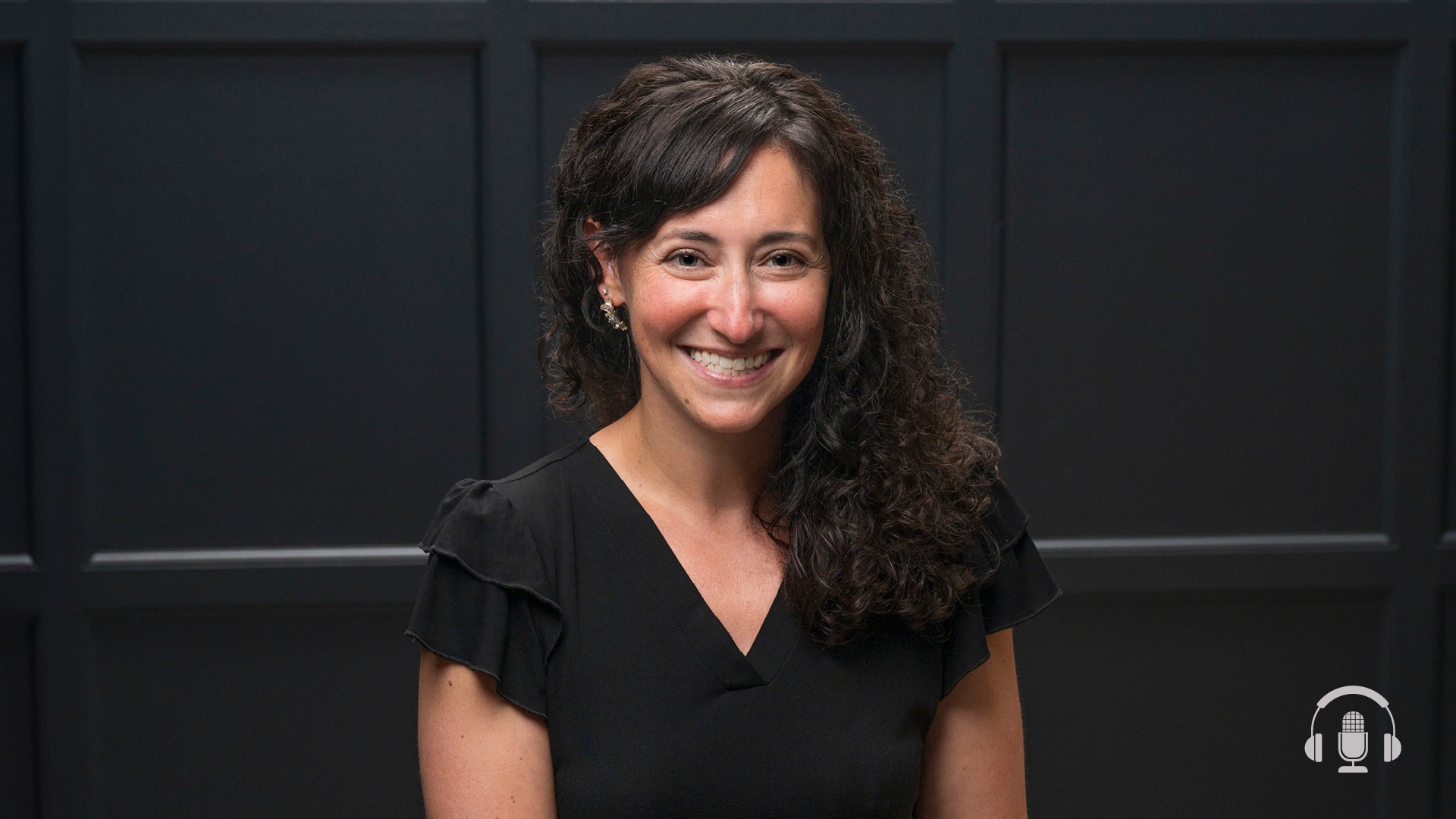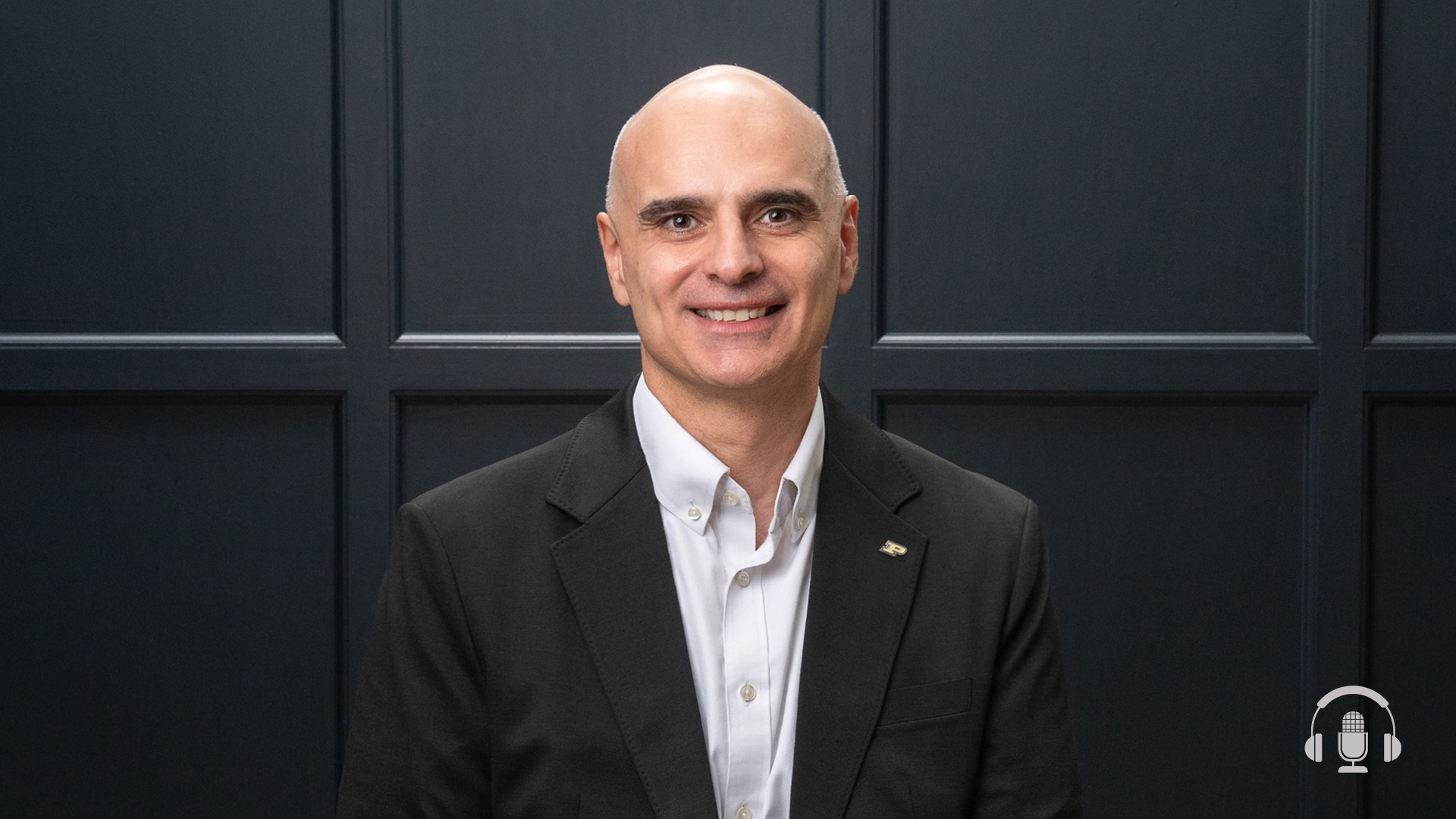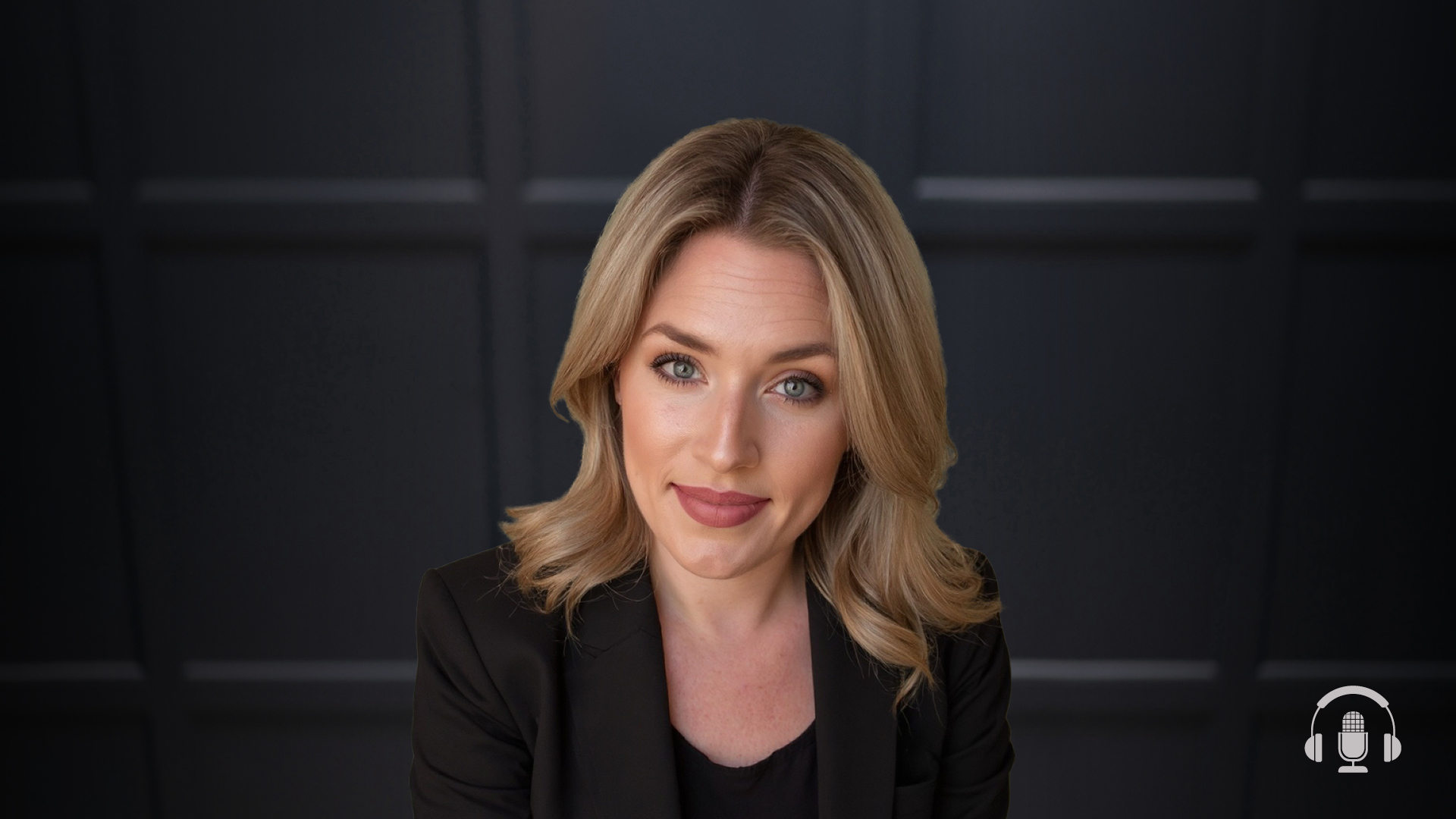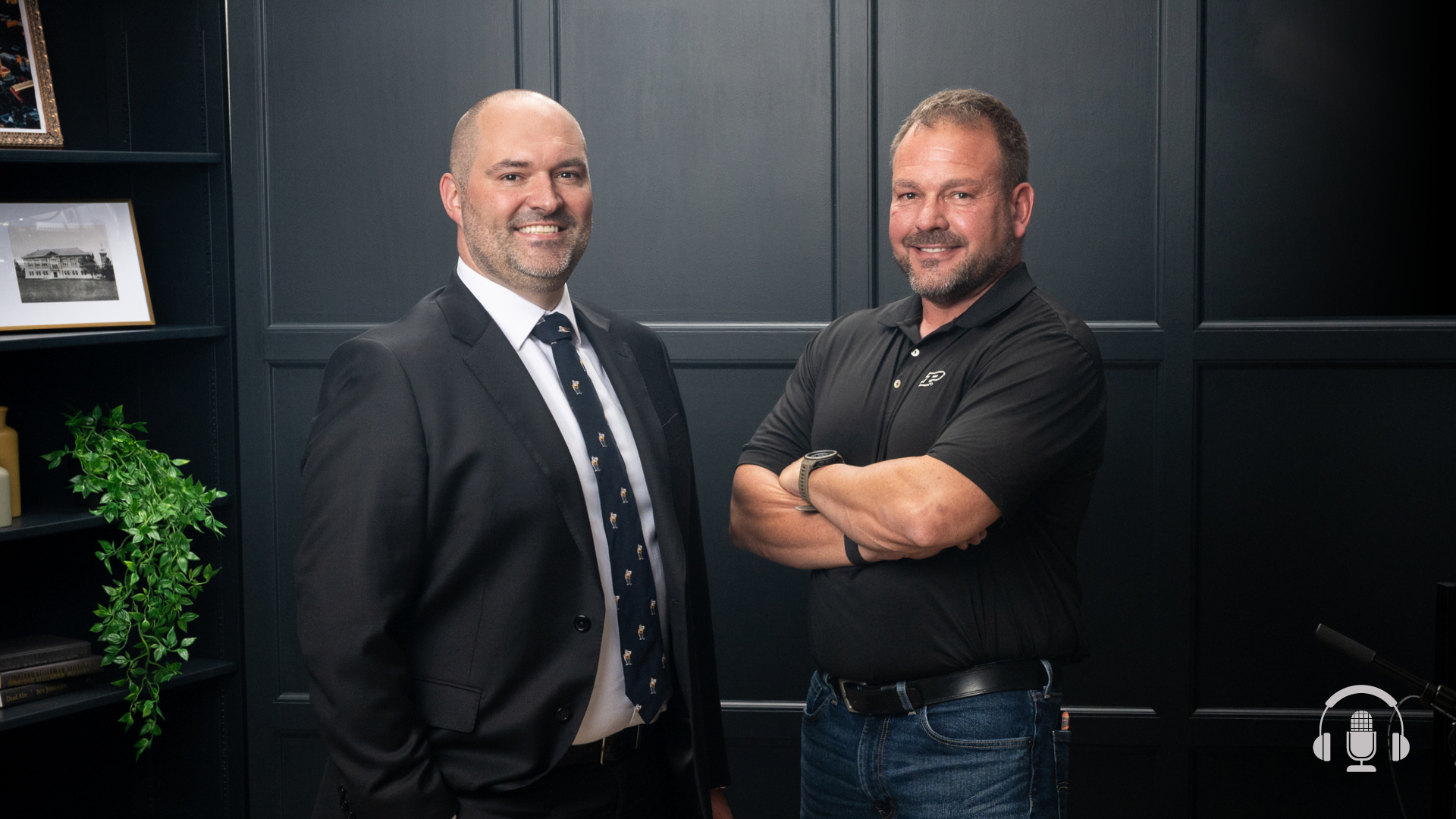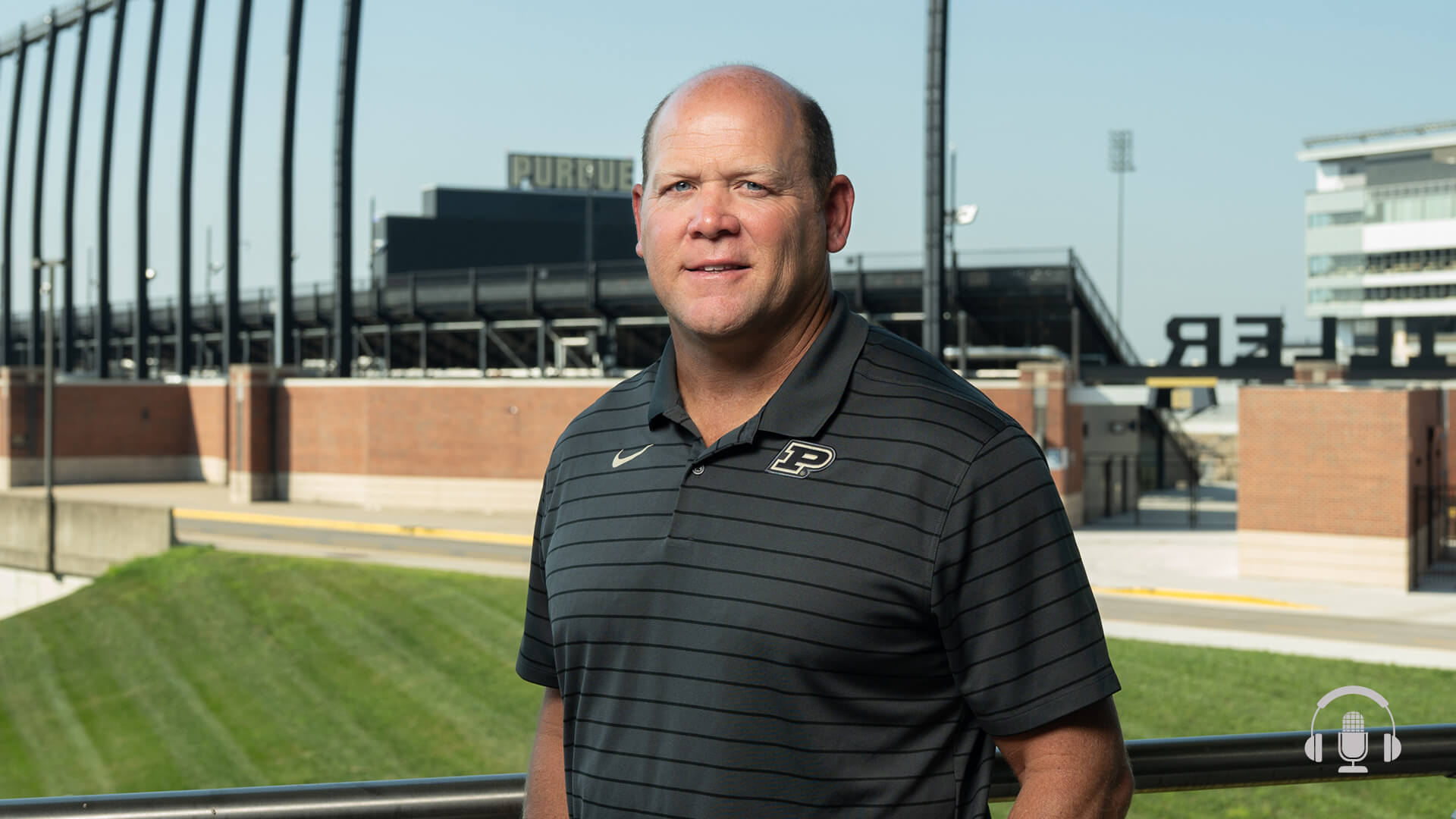Podcast Ep. 131: From Purdue to the Indy 500: How Alex Turner Landed His Dream Job at Dallara
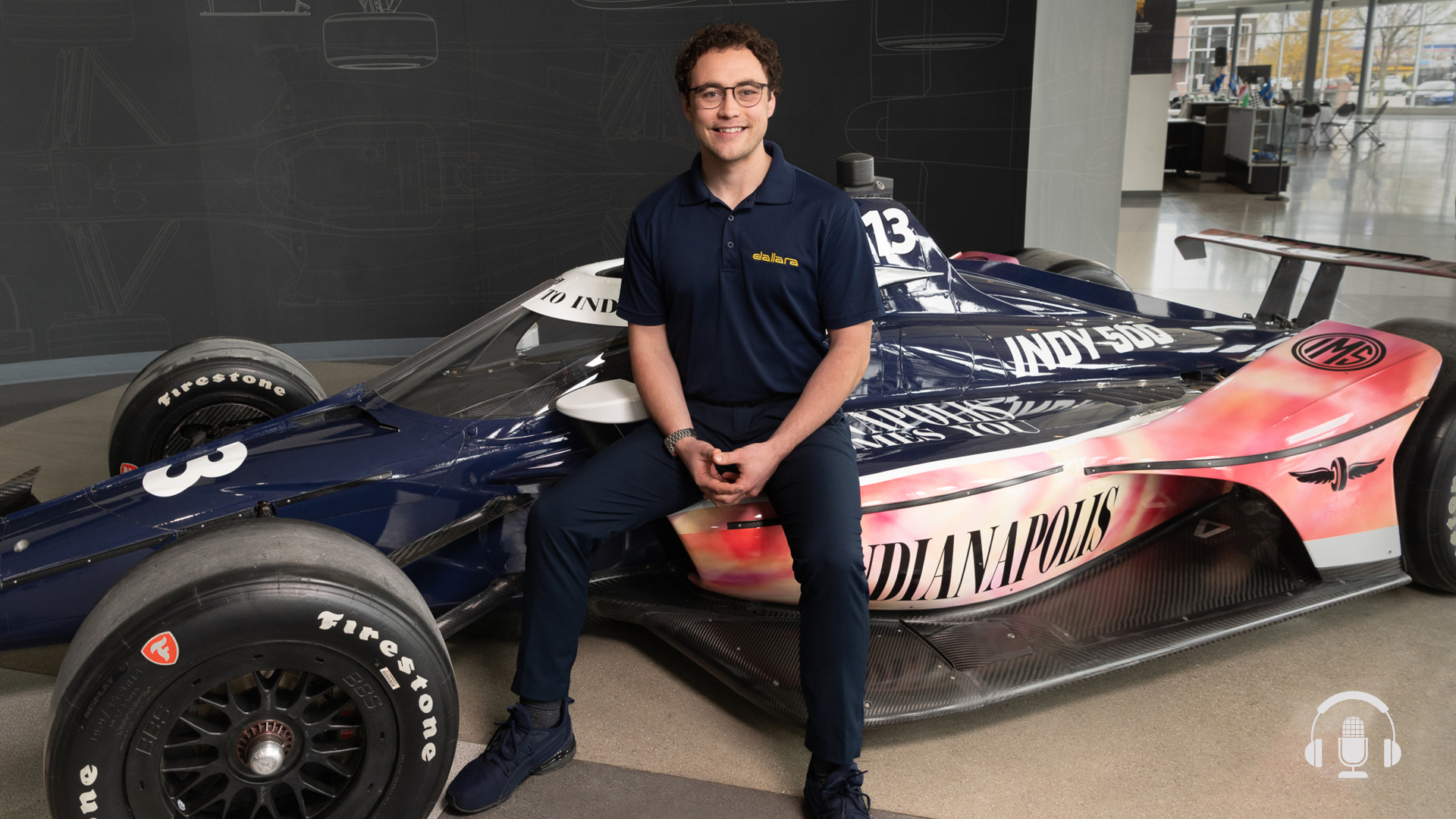
In this episode of “This Is Purdue,” we’re talking to Alex Turner, Purdue alum and design engineer at Dallara.
Alex is a 2022 graduate of Purdue’s motorsports engineering program and has used his skills and experience to earn his dream job at Dallara’s U.S. headquarters in Indianapolis, just steps away from the Indianapolis Motor Speedway — home of the Indy 500.
In this episode you will:
- Learn about the motorsports engineering program at Purdue University in Indianapolis and the opportunities available to students through the new Dallara partnership
- Hear how his passion for IndyCar racing led him to the motorsports engineering program at Purdue University in Indianapolis
- Discover how Alex’s journey as a student in Indianapolis and his industry internships helped him land his current role at Dallara
- Listen to exclusive stories from the IndyCar engineer, including his family ties to the Indy 500 and his favorite race-day memories of “The Greatest Spectacle in Racing”
- Find out about the innovation and collaboration that goes into being a Dallara design engineer, including what a typical day in his life looks like
- Learn about Dallara’s rich history with IndyCar as the exclusive chassis provider for every car on the grid since 2008
You don’t want to miss this special episode that takes you behind the scenes of the world’s fastest racing.
- Learn more about Purdue University motorsports engineering
- Learn more about Purdue’s partnership with Dallara
- Learn more about Purdue University in Indianapolis
- Learn more about Purdue’s mark on the Indianapolis 500
- Learn more about the Dallara IndyCar Factory
- Listen to our 2024 Indy 500 episode featuring three Boilermakers behind the scenes of “The Greatest Spectacle in Racing”
- Listen to our 2023 Indy 500 episode featuring three Boilermaker Team Penske engineers
- Listen to our 2022 Indy 500 episode featuring Purdue alum and IndyCar engineer Angela Ashmore
Podcast Transcript
Alex Turner:
This is Alex Turner and you’re listening to This is Purdue.
Kate Young:
Hi, I’m Kate Young and you are listening to This is Purdue, the official podcast for Purdue University. As a Purdue alum and Indiana native, I know firsthand about the family of students and professors who are in it together, persistently pursuing and relentlessly rethinking. Who are the next game changers, difference makers, ceiling breakers, innovators? Who are these Boilermakers? Join me as we feature students, faculty, and alumni taking small steps towards their giant leaps and inspiring others to do the same.
Alex Turner:
Coming into work every morning, I take it for granted sometimes, but it’s like the historic speedway right there and all of the history. My family’s always been kind of in the Midwest area. I found an old notebook from my great-grandfather that he drew the 1930s of IndyCars going around the track and I never met him, but maybe it’s just in our DNA here.
Kate Young:
It’s that time of year again, Boilermakers. For the past three years, during the month of May, our This is Purdue podcast team has featured all different types of Purdue storytelling that ties into the iconic Indianapolis 500. From IndyCar race engineers on the grid to those leading the behind the scenes detail at the Indianapolis Motor Speedway to execute the largest single day sporting event in the world. In this episode of This is Purdue, we’re talking to Alex Turner, Design Engineer at Dallara and proud Purdue Motorsports Engineering alum.
Last May, Dallara, a globally recognized motorsports manufacturer and Purdue University formally partnered together to house Purdue’s Motorsports program at Dallara’s U.S. headquarters in Speedway, Indiana. Just steps from the iconic Indianapolis Motor Speedway, this facility will house space for classrooms, hands-on training, and diagnostic testing for Boilermaker students, further cementing the prestige of the only accredited motorsports engineering undergraduate program in the country.
Alex was part of this prestigious program which led him to interning for Dallara and kickstarting his full-time career there in 2023. We’ll dig into how Purdue’s Motorsports Engineering program teed him up for success in the professional racing world, including how Chris Finch, Program Director of the Motorsports Engineering program at Purdue University in Indianapolis helps to prepare Boilermaker students for these hands-on experiential learning opportunities in racing. Plus, Alex discusses how curiosity and collaboration play a huge role in his career as a design engineer and shares some of his family ties to IndyCar and favorite race day memories.
By the way, we shot this interview with Alex right inside Dallara’s incredible showroom in downtown Speedway. You can watch the video interview on our podcast YouTube channel if you want the full visuals, IndyCars and all. So drivers, start your engines. Let’s get to it.
Alex, thank you for joining us on This is Purdue. We’re excited to feature you. We’re at Dallara, you’re a Dallara design engineer. You’re also a Boilermaker, so we’re going to go through all those fun journeys right before the 109th running of the Indy 500.
Alex Turner:
Thank you for having me.
Kate Young:
Of course. Okay, so we’ll dive right in. Dallara and Purdue’s Motorsports Engineering program formally partnered together last May. You did your schooling at Purdue in Indianapolis. Why is it an exciting opportunity for students and what do you think they’ll learn and benefit from this partnership
Alex Turner:
For students, I think it’s a great opportunity to literally get a foot in the door here at Dallara and before this was announced, we already had so many Purdue graduates and interns from Purdue Indianapolis or Purdue Lafayette. It’s just a great opportunity to come here and see where it’s actually happening and be at the center of IndyCar.
Kate Young:
Yeah, we’re steps from the Indianapolis Motor Speedway. The Purdue Motorsports Engineering programs going in right here at Dallara too. You were saying before this there’s about 20 other Boilermakers that you work with?
Alex Turner:
Yeah, most of our design office, I think five or six out of the nine of us are all from recent Purdue graduates in the last four years or so. We have two current Purdue Indianapolis interns, another is joining us in May. So it’s exciting and it’s a great feeder program, the Motorsports program. Chris Finch there does a really good job of preparing students so they’re ready to go once they graduate.
Kate Young:
What do you think this partnership means for the future of Dallara and motorsports engineering to have all these Boilermakers together working on the same team?
Alex Turner:
For Dallara, it’s great because I think it gives students even more hands-on experience, a good amount of technical experience here in the building, working in our shop and right next to our trailers where all the engineers are working day in and day out. As a student, to me, that would be super exciting to be able to do that. I wish I could have done that when I was in the program. And from Dallara’s side, it’s just great to have that when students are finished with the program that they’ve already had that little bit of experience and they’re not starting completely fresh and green. So it’s a good opportunity for everyone.
Kate Young:
We’ll get into the day-to-day of your job soon, but first I want to hear what was your entry into the motorsports world? Have you always been really passionate about racing?
Alex Turner:
Yeah, so for me, I went to my first IndyCar race, it was at Kentucky back in probably 2007. I was seven or eight years old at the time, and I thought it was pretty cool, but I didn’t really catch on and then I went to my first 500 in 2011 with a family friend and that’s when it really caught onto me. I didn’t think I realized at the time that it could actually become a career. I was just like, I was into cars, so it became a hobby of mine and then later on, especially once I found out about Purdue Indianapolis Motorsports program, like wow, this could actually be a career.
Kate Young:
I asked Alex what led him to Purdue and if he had always been interested in pursuing engineering as a career.
Alex Turner:
As far as I can remember, I’ve always been into some sort of engineering. When I was really young, before I really got into racing and the automotive side, I was fascinated, I still am with space travel and with aerospace engineering and aeronautics. I was just drawn to Purdue at that age just because of all the astronauts, Neil Armstrong, Gene Cernan, Gus Grissom, they all went to Purdue, so that’s kind of where I wanted to end up before I was even in motorsports.
Kate Young:
So you’ve always loved Purdue is what you’re telling us?
Alex Turner:
Pretty much, yeah.
Kate Young:
What were some of your favorite things about being a Purdue Motorsports Engineering student?
Alex Turner:
When I did my campus tour, when I was getting close to graduating high school, one of the things that drew me to the program at Purdue Indianapolis specifically was just the amount of hands-on courses that they have and the practicum classes where you spend a semester once or twice where you get a project, you’re designing something and then you actually go into the shop and you have to make it and make it a reality. To me, that was incredible to be able to do that. So the theory side of it is important, the calculus, the physics, that stuff is super important obviously and foundational. But to me, for students, the most exciting part was just the hands-on stuff and you actually learn how to be a motorsports engineer.
Kate Young:
I know that’s important and unique about Purdue Indianapolis. What about some of your professors, your courses, how did they tee you up for success in your role at Dallara today?
Alex Turner:
Another thing for the program is that Chris Finch, they have a board of people that are involved every day in the motorsports industry, different teams here at Dallara. So they have a really good finger on the pulse of what teams need, what Dallara needs, what other manufacturers need from students coming out of the program. So the courses are geared directly towards that. Whether you want to become on the race engineering path or the design path or whatever your career goal is, there’s always courses that are very relevant to the industry at the time.
Kate Young:
So you’ve had internships at both Dallara and IndyCar. How did you pursue those opportunities? Tell us a little bit about those internships.
Alex Turner:
The IndyCar one was directly linked with the Purdue Indianapolis program, so they always would select after your first year a couple of students to come and do that, and you’d work at the track, you’re doing technical inspection, you were doing safety reporting, so when there was a big accident, you were taking pictures of the accident and analyzing it with the engineers. Ironically, a lot of the people that I work with now at Dallara that I got to meet back then, I didn’t know that’s where it would lead to, but it was foundational from that standpoint. And then here at Dallara, I really wanted to become a design engineer and for IndyCar, this is basically the place to do it. So I kind of just kept applying, kept applying, didn’t get hired the first couple times, but I just kept at it and they finally let me in the door.
Kate Young:
That persistence paid off, right?
Alex Turner:
Very luckily.Got to intern here for a couple of years before graduating.
Kate Young:
So what brought you here full time?
Alex Turner:
I think that’s kind of what they try to do with their interns. They want to bring people in and if you do a decent job, they want to help you grow. You’re not expected to be perfect out of the gates, but they look for someone that just wants to grow and wants to learn and does well in the Dallara culture. It’s a lot easier to hire someone like that than just fresh out of college because they already have along with me and the other kids that have been hired out of the program, already know how the company works, the systems, you know all the people. So it’s a matter of just that’s kind of a running start in a way.
Kate Young:
Alex shares some of the key takeaways he learned through both his IndyCar and Dallara internships that helped with the transition from graduation to his professional motorsports career. Plus, he dives into a day in the life of a design engineer.
Alex Turner:
I think for me, it really solidified that I wanted to be in the motorsports industry. I think with anyone, you’re kind of your first year in college, it’s really tough and you’re trying to adjust everything. You’re starting to doubt yourself and you’re like, is this really what I want to do? Can I even be successful in this? And the first internship at IndyCar and then coming here to Dallara just solidified them like, yes, this is absolutely what I want to do. It motivated me to work harder in my classes and finish on time because I just really wanted to get out into the real world and start working because I found it was incredibly engaging to me.
Kate Young:
Walk us through what’s a typical day in your life as a design engineer?
Alex Turner:
One of the things about Dallara for me, it feels like most days aren’t the same. So it’s different every day. You never know what you’re going to get. So when I come in, initially it’s first going through if there’s any issues in our quality department, we’ll inspect the part. If they have a question about maybe a defect or something that’s not quite matching a drawing, they’ll grab one of the designers on the part. So that’s kind how I start the day. Then you get your coffee and then you start working towards your whatever project you’re on at the time. We usually have longer term projects that we’re on for a month or a couple of months. Sometimes there’s meetings. If it’s a race weekend coming up, you’re gearing up for that, getting all your stuff together, all your documents, your reports. I always look back at the last year and the year before and see what was problem areas at this event or this track last year or the year before historically, and that’s always helpful to get you in the right mindset for the upcoming weekend.
Kate Young:
Curiosity is one of Dallara’s core values. How do you use that in your approach to your engineering when you show up to work every day?
Alex Turner:
For all of us, I think one of the things that Dallara does well is I think in the design office we have a really good strong company culture where we really try, sometimes you can’t avoid it completely, but we try to not let our egos get in the way. So whenever we’re working on a project, it’s very much, even if it’s kind of an individual task, it’s always a group involvement. So once a day or a couple of times a week, we’ll all come together and be like, “Hey, this is what I’m working on. This is what I’m thinking. What do you guys think about this? Do you think this will work? Or something else?”
Kate Young:
Really collaborative.
Alex Turner:
Yeah, it’s very collaborative and sometimes someone will say something like, “Well, I didn’t think about that. That’s a really good idea. I should do that.”
Kate Young:
Sure.
Alex Turner:
In that way it’s kind of humbleness and not letting your ego get in the way of a good design.
Kate Young:
Do you think part of your education at Purdue also helped with that curiosity, that collaboration?
Alex Turner:
Yeah, I love group projects. And never assuming that you have all the answers. There’s always a better way to do something most likely and always being open to finding new ways or a better way to do whatever you’re working on.
Kate Young:
Dallara has an incredible legacy in motorsports. It’s the largest multinational Italian race car manufacturer with a rich history in IndyCar, Formula One and other series. So what does it mean to Alex to work for a brand with such heritage in the sport?
Alex Turner:
It’s really incredible, honestly. Obviously Giampaolo has been incredibly successful in everything that he’s done and built this amazing company, and Dallara was extremely successful early on in IndyCar winning their first 500 in ’98 with Eddie Cheever. I believe the first Dallara chassis ran in 1997, and then like I said, we won our first Indy 500 in 1998. I say we, it was before I was born. It’s hard to say we there. But Dallara just continued to dominate through the early and mid-2000s, and then in 2012 when the current chassis was developed, Dallara became the sole supplier of the IndyCar Series.
It feels like a big responsibility to have the Dallara name on my shirt because I grew up watching IndyCar and watching all kinds of racing where Dallara, like you said, is heavily involved. Going from an outsider’s perspective to being in the core group now, it’s been an interesting transition I would say. It’s hard to wake up sometimes and realize that that’s what your job is. That legacy just, it still runs deep in the company. I think it’s a very competitive environment. One of our company models as well is Pursuit of Excellence that runs deep here and we really try to do our best to uphold that. Again, not let egos or other things get in the way of that. The most important thing is design the best race car we can.
Kate Young:
What’s an unexpected element of being a Dallara engineer? Is there anything that maybe our big racing fans that would surprise them?
Alex Turner:
It’s a lot of work, long hours. The teams, obviously they have a ton of work and long hours as well, but not everyone’s always happy with you. As an engineer, I found that out pretty quickly. Now, whether it’s a design that didn’t work as you expected it to or something that breaks, in the motorsports industry, especially when you’re at the racetrack, it can get very passionate. So there’s a lot of emotions running high sometimes, so that kind of surprised me, but it’s all part of the job and it’s part of the fun, and you just got to keep pushing and do the best you can.
Kate Young:
How have you worked through that?
Alex Turner:
You have to have a thick skin. Some of the older guys that work here have been around a long time. Sometimes they’ll just try to build your character a little bit. It’s good because that’s what you need and you need to not take things personally when someone criticizes you or criticizes a design that you did. Again, just not letting your ego get in the way and say, “Yeah, I didn’t do a good job here and this can be better, so we’re going to do a better job next time.”
Kate Young:
Alex further explains the role of the Dallara chassis, which is essentially the backbone of each IndyCar that supports and holds all other components in place.
Alex Turner:
Safety is incredibly important. We take it very seriously that we don’t want drivers becoming hurt, or worse, in our cars. That’s something that’s very important to Giampaolo and to all of us. And then just every aspect of the car from what the driver interfaces with, from how the car handles, the consistency of the car, the balance, that’s all incredibly important. From the mechanics side, how easy the car is to work on, to assemble things, for maintenance, all that is incredibly important. So the chassis is just the centerpiece in all of that. It’s where the gearbox comes together, the engine comes together. It’s, I don’t want to say the most important part of the car, but it’s definitely the central backbone of the car where everything relates to the chassis.
Kate Young:
Dallara has a unique race simulator at their U.S. headquarters in Speedway. Alex shares more about this simulator and how engineers and race teams benefit from it.
Alex Turner:
So from the design engineering side, it’s not really our department, but we do have simulations engineers, people that are more kind of on the race engineering path and they work directly with the teams and with the drivers when they come in for a sim session. And normally what would happen is the team will come in, they’ll bring their own data. We say, “Hey, here’s our track model, here’s our tire model,” we’ve developed for like sports cars, for example. They will do a pre and post-event session working with the teams. IndyCar teams occasionally will use it for the Indy NXT side, the development series, it’s more for driver development. It’s time where a driver can purchase some time and they just get seat time. So we’ll say you get eight hours in the day for just practice. As a street circuit, you don’t get a lot of testing or a lot of seat time.
So it’s a really good way for drivers to learn the tracks, learn the cars. We continue to develop it with the series. Especially for the IndyCar and sports car side, they’re doing setup recommendations. Teams will bring, they’ll usually start with their setup from last year and they’ll say, “Hey, here’s what we struggled with last year. What if we tried changes A, B and C?” And we’ll put those in the sim and see how the drivers like it. If they like it, they’ll move on with that and they’ll keep going in that direction.
Kate Young:
You said you’re a racing fan. You grew up a racing fan. What’s a Indy 500 memory that really sticks in your mind that’s really important to you?
Alex Turner:
There’s so many because I feel like… Our family always went to the 500 for most of my life. The best one probably it was honestly last year when being on the grid, my sister, she’s in the Purdue pharmacy program and she’s also in the All-American Marching Band. So she got to play with Jim Cornelison with Back Home Again in Indiana. So we were both on the grid together last year. Even though it rained, that was kind of delayed, but that was incredible to share that with her and have two members of our family on the grid.
Kate Young:
Oh, that is so special. Wow.
Alex Turner:
For me, as an engineer, it’s super important to be engaged with the final product that’s on the track. It’s one thing when you sit at your desk and you design something in CAD and it looks great. You think it’s the best thing ever, and that you think you’re super smart and then it goes on track and it breaks immediately. So to me, that’s really important. That’s honestly where I’ve learned the most. It’s just being at the track and seeing how the mechanics deal with the cars, how the drivers relate to the cars. It’s incredibly important.
Kate Young:
Is there a specific memory or moment that you remember that didn’t go as planned and you had to pivot?
Alex Turner:
There’s always something that comes up that always surprises you. Sometimes it’s things where you think, “Hey, I think this is not great. Maybe this could be an issue.” That never becomes a problem, and then it’s the one thing you never thought about that breaks, that’s super simple. So it’s just stuff like that all the time. It’s just always surprising, I guess.
Kate Young:
What are you looking forward to for this year’s Indy 500?
Alex Turner:
So we have the new hybrid system, which is exciting the first time at the Speedway with that.
Kate Young:
Tell us about that.
Alex Turner:
I think it’s going to be interesting. The weight’s gone up a little bit. The balance of the car is going to change. It’s going to be a little bit more power for qualifying, which is exciting. It was a big challenge last year to kind of package all of that and get that to work properly. So it’ll be really exciting to see that this month I think
Kate Young:
Being so close to the IMS, being in downtown Speedway, what does it mean to the Dallara team to be so involved with the iconic Indy 500 every year?
Alex Turner:
The location is perfect, obviously. During the month of May, we’re constantly running back and forth. They’re delivering parts or sending people over if there’s something. It’s nice to be just geographically close to the Speedway and then coming into work every morning, I take it for granted sometimes, but it’s like the historic Speedway right there and all of the history. My family’s always been kind of in the Midwest area. I found an old notebook from my great-grandfather that he drew the 1930s of IndyCars going around the track.
Kate Young:
Oh my gosh.
Alex Turner:
And I never met him, but maybe it’s just in our DNA here.
Kate Young:
That is so cool. What a cool story. What do you think Dallara’s broader impact in the world of motorsports is beyond just the Indy 500?
Alex Turner:
We have cars in Formula One. We have five or six cars that compete in Le Mans every year. It’s 24 hours to Le Mans. We have the IMSE SportsCar Series here in the U.S. We do F2, F3 over in Europe. We do Japanese Super Formula. So we have almost every continent, every weekend there’s some Dallara car racing. It’s almost like this global empire in a way, I guess.
Kate Young:
It is. Have you made the trip to Italy yet?
Alex Turner:
Yeah, a few times.
Kate Young:
You have?
Alex Turner:
Yeah, it’s an incredible facility. We have an incredible facility here as well, but over there we have about 60 employees here in the U.S. Italy has the Wind Tunnel, they have their own simulator, almost identical to the one we have. They have about 800 employees over there, so that’s still where most of the company is, and we’re on the phone with them every day on either video conference calls or chatting back and forth with them. So yeah, it’s an incredible, incredible experience over there.
Kate Young:
What advice would you have for students who are currently in the Motorsports Engineering program or hope to be one day?
Alex Turner:
I would take advantage of all the extracurricular activities that you can, like getting hands-on experience. Obviously internships when they become available, because that’s, I think, where you learn an incredible amount. Always take up opportunities when they come up. Just keep working incredibly hard. It’s really easy to get disheartened whenever classes get tough, they will and they do, but just keep pushing through it. It’s hard. Everyone goes through it. So we’ve all just had to survive and it does get better. It does get better.
So I have a funny story about this. When we were going around to, I was in high school and we were looking at with my parents, some different colleges and everything. My dad really wanted me to check out the Purdue Indianapolis program. He’s like, “You don’t understand. They have this really cool program with former motorsports engineers and they have all these connections with race teams.” I’m like, “No, I don’t really want to. I want to go to the bigger campus.” I didn’t really want to go. I finally went. It was the most incredible thing ever and after that day, I didn’t want to go anywhere else but Purdue Indy. So I would probably tell myself to shut up and just listen in that scenario.
Kate Young:
Follow your instincts there.
Alex Turner:
My parents were right on that one. I was wrong. It turned out okay.
Kate Young:
They must be so proud to have two kids on the track at the Indy 500. That’s awesome.
Alex Turner:
Very lucky.
Kate Young:
Okay, finally, in case you weren’t aware of our podcast streak for predicting the winners of the Indy 500, This is Purdue has interviewed multiple Purdue IndyCar engineers who have gone on to win the Indianapolis 500 with their respective teams and drivers.
In 2022, Purdue alumna Angela Ashmore made history as the first woman to win the Indianapolis 500 as a member of the winning cars crew with IndyCar Driver, Marcus Ericsson. And in 2023, we interviewed two team Penske IndyCar engineers, also Purdue alums, Matt Kuebel and Mike Koenig. They worked on all three team Penske IndyCar entries that raced in the 2023 Indianapolis 500, including Josef Newgarden, who won the 107th running of the Indy 500 that year. And then Joseph won it again in 2024. It just wouldn’t be our annual Indy 500 celebration episode without a few predictions. So I had to clue Alex in on the fun.
Wait, I have to tell you a funny story. So every year that we do this interview, yours is excluded because you’re not part of a true team, of course, you’re part of Dallara. So the one year we interviewed an engineer at CGR and that driver won the Indy 500. The next year we interviewed Team Penske engineers and that driver won the 500. So we have a track record for predicting the Indy 500 winners. So we have to hear who your prediction is, if you’re allowed to say.
Alex Turner:
I think it’s going to be a Dallara car. I think we got a shot this year to do it. So you’ll be able to keep up your streak, which is good.
Kate Young:
That’s a biased opinion, but I like being able to keep up my streak. Well, Alex, did I miss anything? Is there anything else you want to tell our listeners?
Alex Turner:
I don’t think so. Thank you very much. Appreciate your time.
Kate Young:
It was great being here at the Dallara U.S. headquarters, and thank you for joining us.
Alex Turner:
Thank you very much.
MUSIC:
How I long for my Indiana home.
Drivers, start your engines.
Kate Young:
This year’s 109th running of the Indianapolis 500 presented by Gainbridge is on Sunday, May 25th. We can’t thank Alex enough for joining us on This is Purdue, and a special thanks to Dallara for hosting our team for this incredible episode. You can watch more behind the scenes videos with Alex. We challenged him to draw an IndyCar by memory. And spoiler alert, he did a fantastic job. Don’t miss this video and more. Head over to our YouTube channel at youtube.com/@ThisisPurdue. And be sure to follow This is Purdue on Apple Podcasts, Spotify, iHeartRadio, or wherever you get your podcasts.
This is Purdue is hosted and written by me, Kate Young. Our podcast videography for this episode was led by Ted Schellenberger, Jon Garcia, Thad Boone, and Zach Mogensen. Our social media marketing is led by Maria Welch. Our podcast distribution strategy is led by Carly Eastman. Our podcast design is led by Cheryl Glotzbach. Our podcast photography is led by John Underwood. Our podcast team Project Manager is Rain Gu. Our podcast YouTube promotions is managed by Megan Hoskins. Additional writing and research assistance is led by Sophie Ritz and Ashvini Malshe. Our creative production assistant is Dalani Young. And our This is Purdue intern is Caroline Keim.
Thanks for listening to This is Purdue. For more information on this episode, visit our website at purdue.edu/podcast. From there, you can head over to your favorite podcast app to subscribe. And don’t forget, you can also check out all of our podcast content on our podcast YouTube page, youtube.com/@ThisisPurdue. And as always, boiler up.
